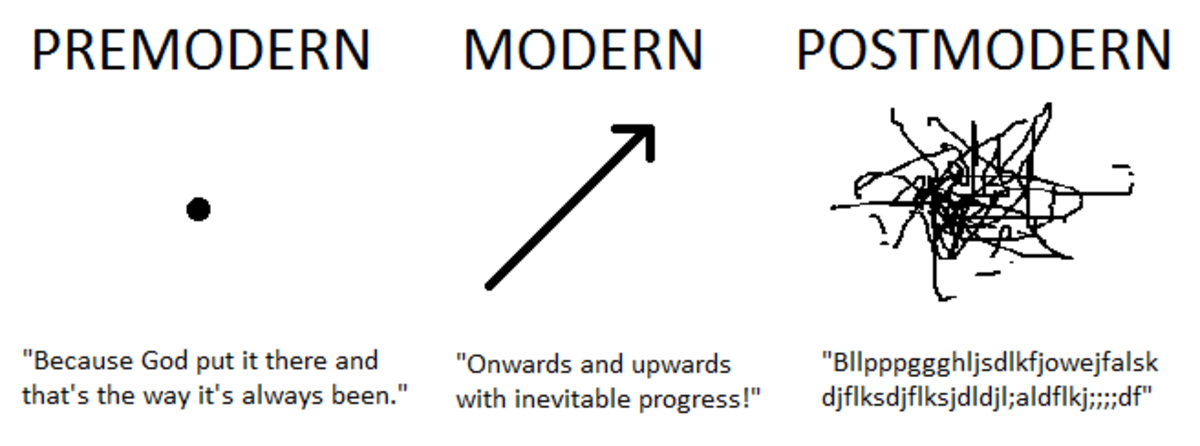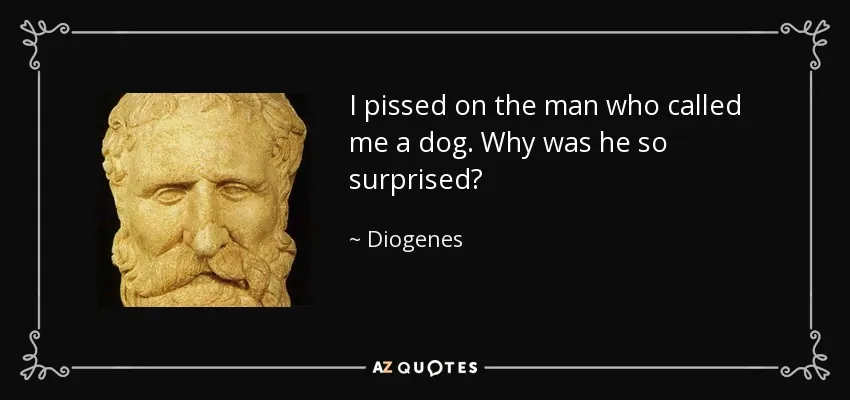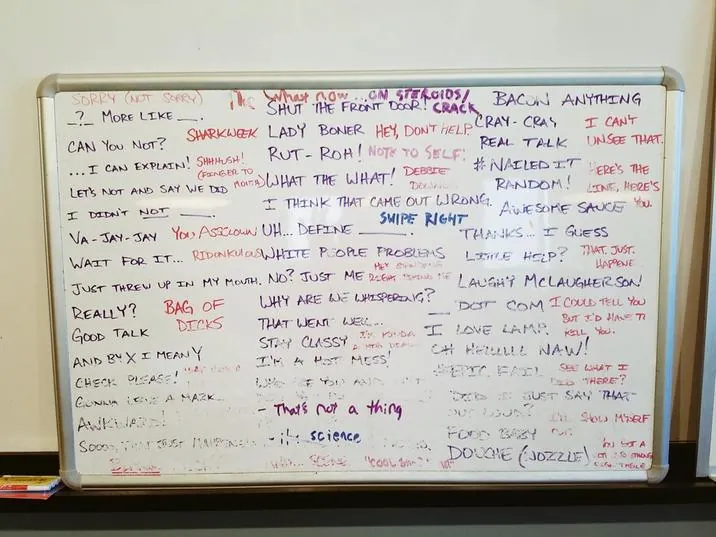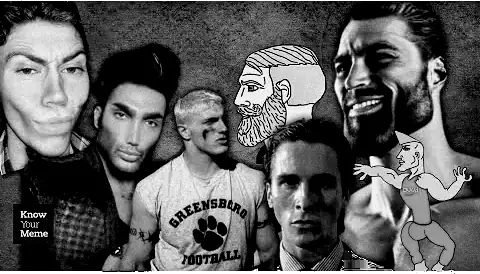
Recently I’ve been having the pleasure of hearing more about David Foster Wallace’s works, and was specifically captivated by this commencement speech that he gave many years ago that many have given the title, “This is Water”. It’s a beautiful speech, and to me it really cemented DFW as person to research more, and that his most (in)famous work, Infinite Jest, may really be as good as literature buffs claim it is.
I haven’t gotten my copy of Infinite Jest yet, but DFW’s philosophy has put into words something that I knew implicitly yet struggled to really articulate until now. Many attribute DFW to a newer school of thought called “the New Sincerity”, rejecting ironic detachment in favor of being honest and earnest. This article won’t be about DFW as much as it will be about my interpretation of New Sincerity in regards to Generation Z versus older Millenials and even Generation X. This nothing definitive mind you; just some observations that I think are worth discussing. First, we need to address where this irony comes from, first and foremost.
Postmodernity
After the Enlightenment, the concept of modernity started to arise. This gave way to certain ideas that were pretty much considered to be infallible. Most importantly, Modernity decided to reject traditions that it considered crude or “irrational” in favor of their “rationality”. They would progress humanity towards a utopic “peace on Earth” without such institutions such as organized religion. Through the progress of modern science, medicine, and industry, they believed that they could eradicate famine, prevent war, eliminate conquest, and perhaps even stop death. Other concepts were a part of this as well, but these were the main three that really mattered the most. However, after not one, but two horrific World Wars, many were shaken by it’s traumatic events. Indeed, the slaughter of human life in these wars will hopefully never be forgotten, but it also had ramifications on the concept of Modernity. Now it became all too clear that the over-ambitious pursuit of technology for the sake of creating “peace on Earth” had led to the exact opposite effect. That technological progress had increased war and famine, encouraged conquest, and spread death the likes of which hadn’t been seen since the conquest of Genghis Khan’s empire. Nowadays, this anti-industrial sentiment is bit more well known because of people like the late Ted Kazyncski, but even people like Marx were critiquing industrialism even before the World Wars. However, the intellectuals who lived through the World Wars were trained in Modernity and more or less believe their salvation lied in modern thought. Their concept of rationality was supposed to lead to a utopia, and it instead led to the century of horrors.

You could pinpoint postmodern thoughts to many different events in the 20th century, but post-WWII it’s easy to see the divide. In the political science realm, this thought manifested in Political Realism. This school of thought claims that ideals in geopolitics are borderline meaningless, and generally tends to merely perceive the world of geopolitics as a “might makes right” domain, where man is self-interested and his natural state is one of lawless anarchy. You can see this in the writings of people like Julius Evola and Theodor Adorno, people who normally would be considered on the opposite ends of the poltical aisle. To put this in layman’s terms, the century of horrors had effectively blackpilled a good portion of modern intellectuals. They had mainly rejected the idea of God, tradition, community, etc., but when the veil of modernity was torn down, that idol they had replaced God with had left a void in the heart of societies effected by the Enlightenment. Despite this, modernity pressed on regardless, due to there still being nothing to replace it.
Modern Times with an Old Soul

As modern media started being made with the rise of cinema and television, there would eventually come postmodern thought for that as well. Postmodernism in art is defined a bit differently, but the main constant throughout anything considered postmodern is “deconstruction”. Deconstructionism is exactly what it sounds like; it is a technique solely to take established tropes, conventions, and cliches of a genre or media generally and ideologically take them apart, often as a full or partial critique of said media, or even potentially as an innovation. This is often acheieved with satire and/or irony. This can mean being self-referential, self-deprecating, using ironic detachment, or perhaps all three and more. Deconstructionism as an artistic technique is not necessarily a terrible thing; much like exercise, it is necessary to inflict rip apart some muscles in order to grow them back even stronger. New techniques and ideas can lead to newer, better, and more interesting ways of storytelling. However, the particularly concerning part of this is that as a result of shows such as the Simpsons or other popular examples of postmodern media, they end up self-deprecating and being so irreverant to the point pretty much nothing is sacred anymore, and what is left is pure skepticism with nothing else (which leads to Nihilism).
Really, the Simpsons was tame by comparison to it’s successors. South Park and Family Guy are particularly notorious for leaving nothing untouched, no sensitive subject unscathed, and making fun of everything in a near complete fatalist manner. I’m not going to blame these shows outright, because their existence isn’t the root the problem, it’s merely a reflection of the problem, and perhaps and magnification of it. The truth is that when the veil of modernity and all its material benefits aren’t present, there is a lack of three things that a person needs. They need a strong community of people they trust (this includes family), certain truths about the world that will be true no matter what, and spiritual fullfillment. Throughout the 20th century, it became clearer and clearer that pure “rationality” was not actively improving anything except general material wealth, which is temporary anyways depending on several factors. Man was effectively left with nothing. What shows like South Park really highlighted was really just the thoughts of the majority of people; nothing really matters and we will all die anyways, so let’s just make fun of everything and enjoy our material spoils while we have them. This fatalistic mentality might work for those who have that material wealth or some other form of worldly security, but for those who don’t have it so easy, it’s pratically unbearable. You simply cannot replace community, spirituality, and inalienable truths with materialism; these are metaphysical things that human inherently need that modernity and especially postmodernity cannot provide. Man needs sacred, unchanging ideas and beliefs that will guide him through an ever-changing world. Older sitcoms provided this, and what the Simpsons left in it’s wake was a lineage of cynical shows that merely showed how terrible the world is and gave absolutely no credence to any kind of belief whatsoever. This same cynicism, in DFW’s eyes, would later condition people into certain modes of thinking. When media and art has become critical of itself, people will start to become their own critics rather quickly, and subject everything to critique and ridicule themselves (which includes their own selves of course).
Marvel Eye-Rolls

This self-deprecation has become one of the hallmarks of popular media. This was arguably popularized with Marvel Studios movies, especially after the success of The Avengers, but this is more generally observable in Disney movies as well. Usually there will be some kind of quips or comedic moment in the middle of a dramatic scene in order to alleviate any tension. The scene from Avengers where Hulk screams thinking Tony Stark is dead showcases this perfectly. It was at a point in the movie where the main battle was over and it seemed like Tony Stark had made a tremendous sacrifice for the betterment of others. His act of sending the missile was a completely selfless action and one that he feared actively. After narrowly escaping back to Earth through the portal, he is sent hurtling down to the ground. In a more dramatic movie, it’s likely that Tony could’ve died, or at least been seriously injured. Even assuming he recovered fully, mentally he might be completely different. There’s a great moment of silence where the rest of the Avengers look over Tony, wondering if it’s too late. Then the Hulk screams and wakes up Tony, who cracks some funny quotes alleviating the tension completely. This scene isn’t so bad by itself, and not every movie has to be so serious, but when every piece of media is incapable of showing uncomfortable moments that show real suffering, awkwardness, or anything that could make the average person slightly squirmish, it in turn makes the resulting media meaningless. There must be some kind of mental tension between the viewer and what is happening on the screen, because if there isn’t, it’s basically just mental junk food. Some nonsense every now and then is fine, but a mind that gets nonsense constantly is essentially starved of mental nutrients. The audience that has everything spoonfed to them in such a hyper-palatable way is one that will grow bored very quickly, and that boredom will manifest into stronger emotions like hate and loathing. In short, they’re basically not allowed to feel much of any emotion at a time.

Indeed, people have grown to hate this adundance of sarcasm and irony merely because it is self-aggrandizing in it’s self-reference and self-deprecation. It’s a smug jab from the writers to make them appear safe from criticism. They think that if they critique themselves first, then it somehow improves their image or makes them more “in-touch”. However, these things can’t exist in a vaccuum. In a movie with more substantial writing and depth to it already, a quip or two might actually land the mark if executed well, and some kind of self-deprecation might be more positively received as an earnest subversion; something the creators wanted to do because they felt it was appropriate. Instead, the writing reminiscient of Marvel one-liners is merely done in order to make moments seem more clever than they really are. Moving away from movies, video games are a particularly interesting realm when it comes to this. A recent example is Forspoken, a game that came out in January of 2023, and was mocked relentlessly online for it’s trailer. Feel free to see some examples of the writing. Truthfully, the writing might not have been so bad had the relationships been more fleshed out, but all too often games like Forspoken and the Borderlands series often just skip to the quips completely and forget to have substance anywhere else. The want you to find their characters endearing but completely forget how to do so in the process. That’s the main problem with many of these Joss Whedon inspired writers in the first place; they want to self-deprecate and act like their characters are already beloved by everyone, but they don’t put in that effort. It worked a lot better with The Avengers because those characters were already pre-established in other movies. They had gone through serious drama and suffering, so Tony Stark makes a quip it’s not perceived the same way. He’s already “won the audience’s heart”, so to speak. Games like Forspoken don’t even attempt this and skip crucial steps in storytelling necessary to get to the point of deconstruction; you must have something to deconstruct in the first place.

The best example I could possibly ever give for this is the 2014 video game The Stanley Parable. This review by Matthewmatosis says it all, but I’ll reiterate a few of his points. The Stanley Parable is not pre-established, and it lacks depth due to it’s simplicity. The quips the narrator constantly makes may seem like they’re insightful deconstructions of video games as a medium, but The Stanley Parable barely stands on it’s own two feet and it has the audacity to try and critique itself as if it’s even deserving of criticism in the first place. Again, this is not a pre-established, well known franchise that might deserve criticism. The Stanley Parable is a very unique original game that needed to prove its worth in the first place. It did that in a sense; the main gameplay of it is actually executed somewhat well. It’s actually weird to say, but most games often don’t react to your actions or even acknowledge as well as The Stanley Parable, and the game never wavers in giving the player options at all times, even if they are very linear. What keeps it back from being great is its insistence on critique, as if it must critique itself in some act of humility, which has the exact opposite effect.
“Based” on what?

If you’ve been online regularly you might have heard the term “based” before. Since it’s slang, it’s usage might seem confusing at first, and the etymology definitely is confusing, but let’s look at the context.
The term “based” came from a Hip-Hop artist known as “Lil B”, also known as “Based God”. In an interview in 2010, he actually explains the origins of the word pretty succinctly.
“Based means being yourself. Not being scared of what people think about you. Not being afraid to do what you wanna do. Being positive. When I was younger, based was a negative term that meant like dopehead, or basehead. People used to make fun of me. They was like, ‘You’re based.’ They’d use it as a negative. And what I did was turn that negative into a positive. I started embracing it like, ‘Yeah, I’m based.’ I made it mine. I embedded it in my head. Based is positive.”
In short, “based” was originally an insult used as a pejorative (think of someone who is “base” or lacking in nuance or higher thought). Instead, Lil B embraced this term and spun it into his own definition. He accepted the label and used it to propel himself forward, which is something his dedicated fans would spread throughout the 2010’s, becoming especially prolific in the late 2010’s and early 2020’s. Though it’s a bit divorced from it’s original definition and etymology, the term is still used to denote someone or something is that is outspoken or noncomformist. It’s not too much of a stretch to say that “based” is the new way of saying something is “cool”. However, the difference here is that while “cool” was often used in the counter-culture of the 90’s, “based” represents the new sincerity. It’s used ironically as well, yes, but this term is used unironically by many zoomers. There is an actual genuine reverance for people who are willing to express their genuine opinions, even (and especially) if they are nonconformist.
The mindset behind this is rather simple. Zoomers are now growing up, and they have not only been born into a world of postmodernism, but one where they cannot remember a time without the internet. The internet in particular has taken postmodernism to a completely next level. There are thousands if not millions of millions of conflicing voices on centralized social media platforms all spouting different rhetoric, “truths”, and opinions that openly contradict and conflict with one another. Zoomers have grown up in this world of noise and have consequently fallen to abject apathy. Their self-esteem is low, and they often have a habit of making things worse for themselves by drowning themselves in time-wasting escapism, like video games and porn, and also drugs and sex. The self-confidence that is exuded by the “Chad” archetype and the several variations of that meme that have manifested throughout the years (and I mean several), is something that Zoomers actively wish they had. They long for confidence and personal meaning that constantly feels apathetic to their existence and makes them constantly feel insignificant. They don’t have wealth, they don’t have job security, they don’t have a girlfriend. In a world of materialism, they are abject failures. Even metaphysically, they lack religion as a ideological framework to interpret information and they usually don’t have a very strong community or even family (consider the divorce rates that have increased in the 20th century onward). They long to be that Chad who can speak confidently, knowing he is right, but they lack the framework to do so. This is the crisis of a Zoomer; how does one navigate throughout what seems to be a meaningless life in a material world?

In order to navigate through this world of noise where not one person can agree on any given issue, they use ironic detachment not as a means of jesting or joking, but as a social survival method. Say for instance someone is talking about the Holocaust. Jamiroquai the Zoomer knows from school that the Holocaust is bad and killed 6 million jews, but he also knows from 4chan’s political board that the Holocaust is fake and that Hitler was actually a good guy who was just too “based” for modern civilization (keep in mind this is a modern civilization he actively maligns for giving him a lack of internal purpose). Now, normally in America, it’s taboo to talk about Holocaust denial and the like because the Holocaust has become an emotionally charged issue due to it basically being propaganda for why the Nazis are bad and are left to think they had no redeeming qualities. Hitler was the most evil man who ever lived and he killed six million jews; no other answer is right. However, Jamiroquai likes what he heard online better, and he’d like to think at least part of it is true. So when the person he’s talking to talks about how the Jews were treated, he makes a dark “joke” about how the Jews wanted Germany’s money; maybe he mentions something about the Weimar Republic and it’s failure. Now, framing this as a joke is very key here. If Jamiroquai had framed this as fact or his personal belief, there’s a good chance he would be lambasted if that person doesn’t agree with him. If he framed it as a question, it would be potentially worse; he might be belittled for “not knowing any better” and lambasted as well. Framing this as a joke allows for ideological safety. If the person likes his joke and agrees with the sentiment, then they’ll laugh and express agreement. If they don’t like it, he can just claim he was “being ironic” and move on. This is simply how bad it has become, where people will socially detach from one another based off of even minor political issues. Not saying the Holocaust is minor mind you, but the very fact that two very strong narrative exists in parallel with one another with no definitive consensus among everyone is an alarming social dilemma for a zoomer in particular, who often doesn’t have a strong community or religious framework to rely on like the older generations. Obviously not everything on the internet is true, but some of it surely has to be. How do we figure out what’s real? The answer for them without religion is ironic detachment. That allows them to “test the social waters” before they take any sort of plunge, but that’s assuming they will ever take a plunge anyways.
X, Y, and Z: A Generational Difference
The past three generations of America, Generation X, Y (Millenials), and Z (Zoomers), have grown up largely in an age of great cynicism. The entertainment they watched growing up was cynical, the wars and events they experienced made them cynical, and generally the world has turned into a cynical place where everything is critiqued and derided, and nothing is sacred. This lack of the sacred has destroyed human foundations that are necessary for people to live fulfilling lives. Community needs to be there, as does God and objective truths that are unchanging. Without these, there is no anchor in life, and people will float away in the sea of life, hopelessly bobbing in the waters. Think about the divorce rates, the suicide rates that have gone up dramatically in the past 20 years alone. People below the age of 20 taking their own lives. Many older people like to look back at their childhoods fondly for the freedom they once had, but for a zoomer this “freedom” is the shackles of a overburdened mind with no idea how to live his life. Many simply despair and give up hope, and succumb to the turbulent waves. I’ll say it once more; God, community, and truth must exist, because there is nothing meaningful without those three things.
A 4th Necessity
There is one more thing I would like to mention besides these things as well. If you didn’t watch that DFW commencement speech I linked above, I suggest you do so now as I will be paraphrasing his words and it’s a beautiful speech regardless. DFW didn’t say this in his speech, but what he’s talking about primarily is the concept of “mindfulness”. Mindfulness, simply put, is the action of one focusing on the present moment, and interpreting thoughts and feelings actively. If God is a spiritual anchor, and community and truth are social anchors, then mindfulness is a mental anchor, designed to help you navigate your own mind. Indeed, that overwhelming sensation that social media gives to many is the result not only of it’s manipulative algorithms, but also lies on the person not allowing themselves the space to process and work through thoughts. Basically, it’s a form of meditation. Hearing the word “meditation”, you might be inclined to this is closely related to Buddhism, and you’d be right. However, even in a secular context, mindfulness can be useful as a technique to calm the mind and set aright ones thoughts. However, this is much more effective from a theistic standpoint, which is were another Eastern religion comes in.
The Orthodox church in particular has many early writings from the church fathers about “mindfulness”, often more translated as “watchfulness” or “vigilance”. In the Orthodox tradition, thoughts are subject to demonic temptations, and have to be constantly filtered in the Christian mind. This concept in Greek is called “nepsis”, from the Greek verb “nepho” (meaning to be vigilant or mindful). St. Antony the Great (251-356 AD) said:
“…and this is just what we find; for the power of discrimination, scrutinizing all the thoughts and actions of a man, distinguishes and sets aside everything that is base. . . . (Philokalia I)
With this in mind, we can choose what to think about certain events and people. This is key, because without mindfulness, you thoughts will become overbearing (especially using things like social media). Much like mail room, you must receive what comes in and filter them according. Bad, negative thoughts that will harm you and make you despair have got to go, and good thoughts that uplift you spiritually must stay. Combined with a good theological basis and community, mindfulness, or nepsis will take you closer to a more pure mind and more prudent mindset, which you can use to seize your mind and make yours days much more manageable.
